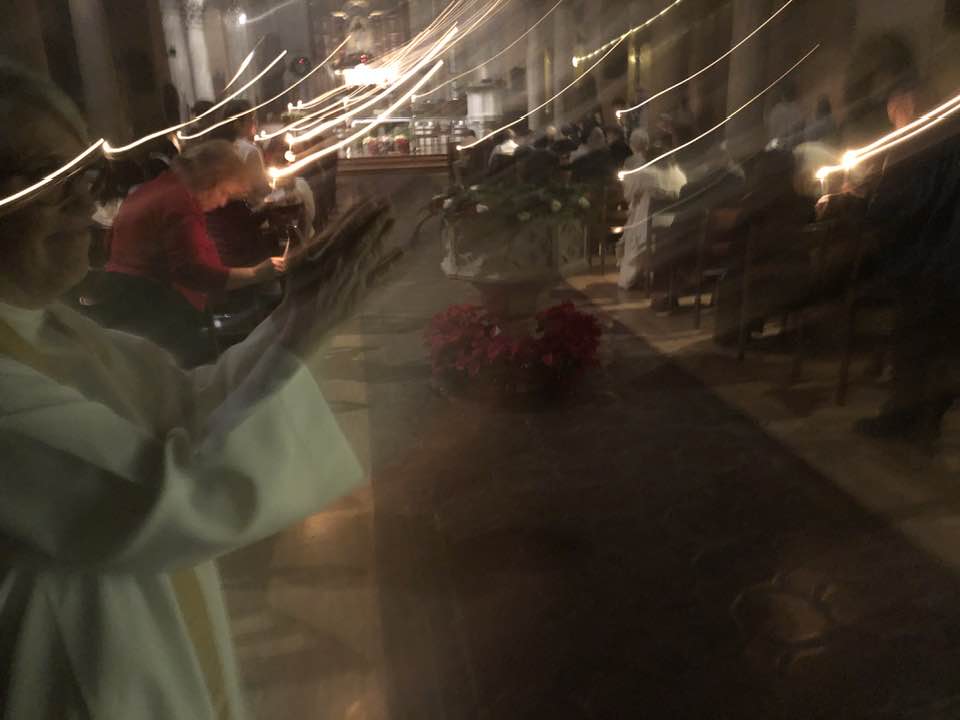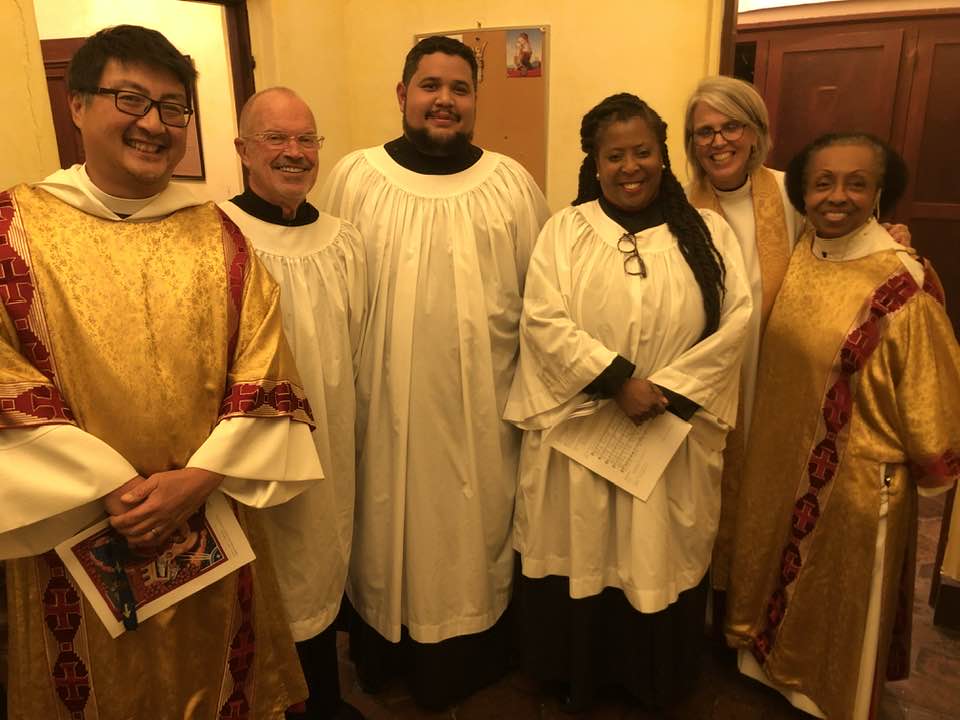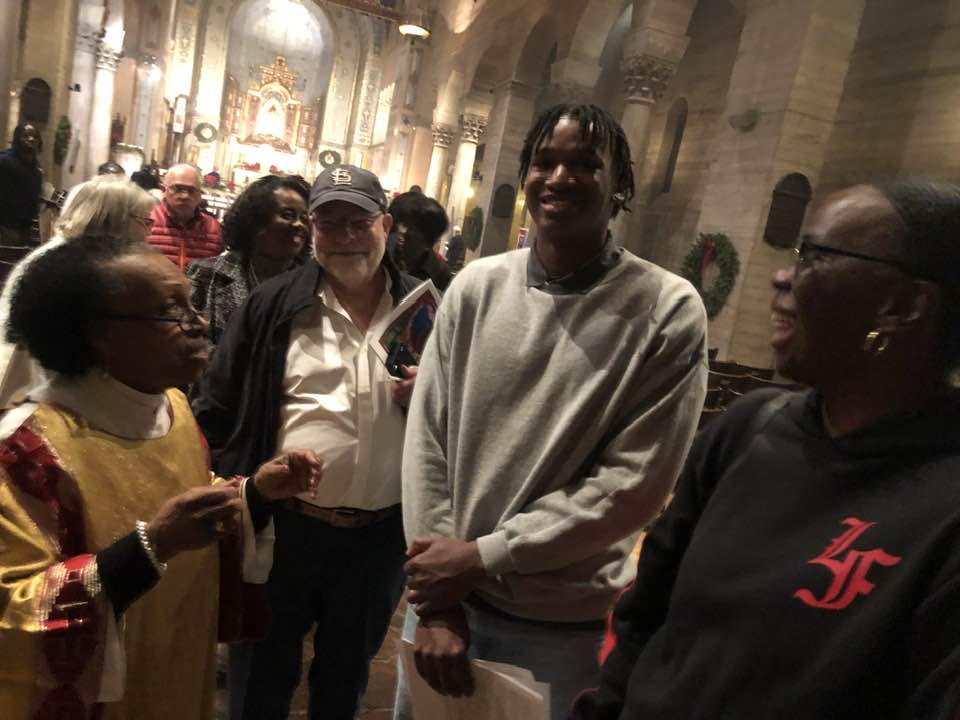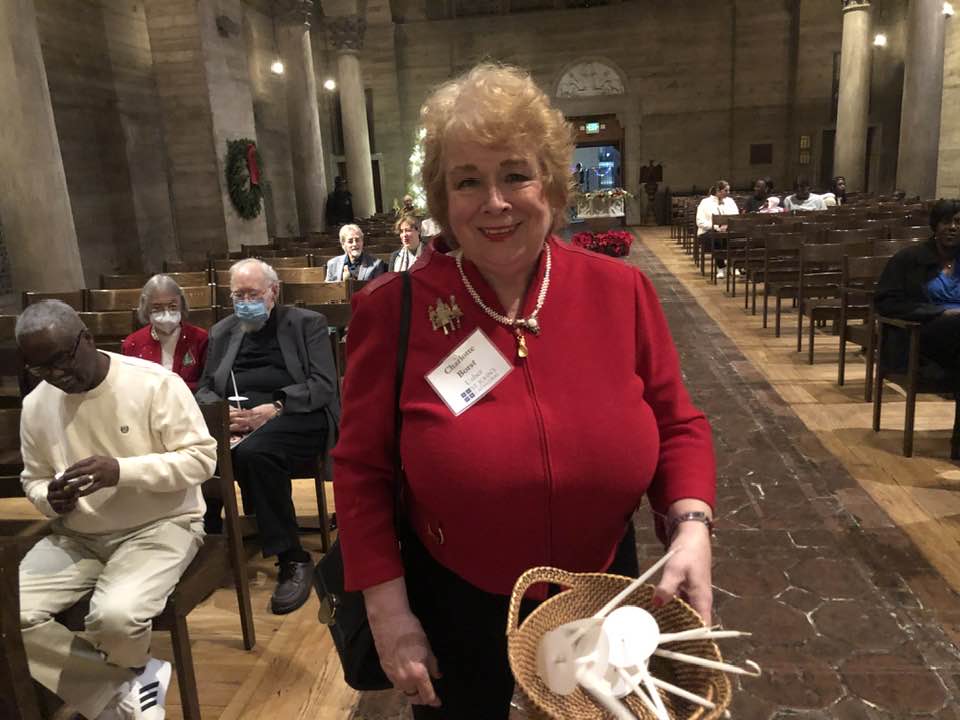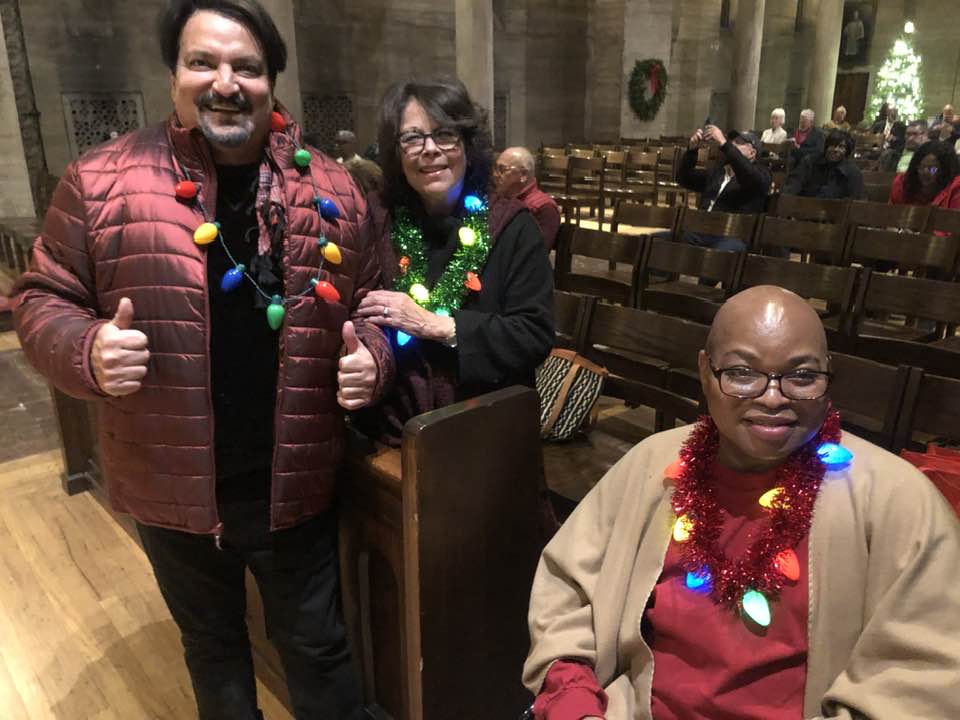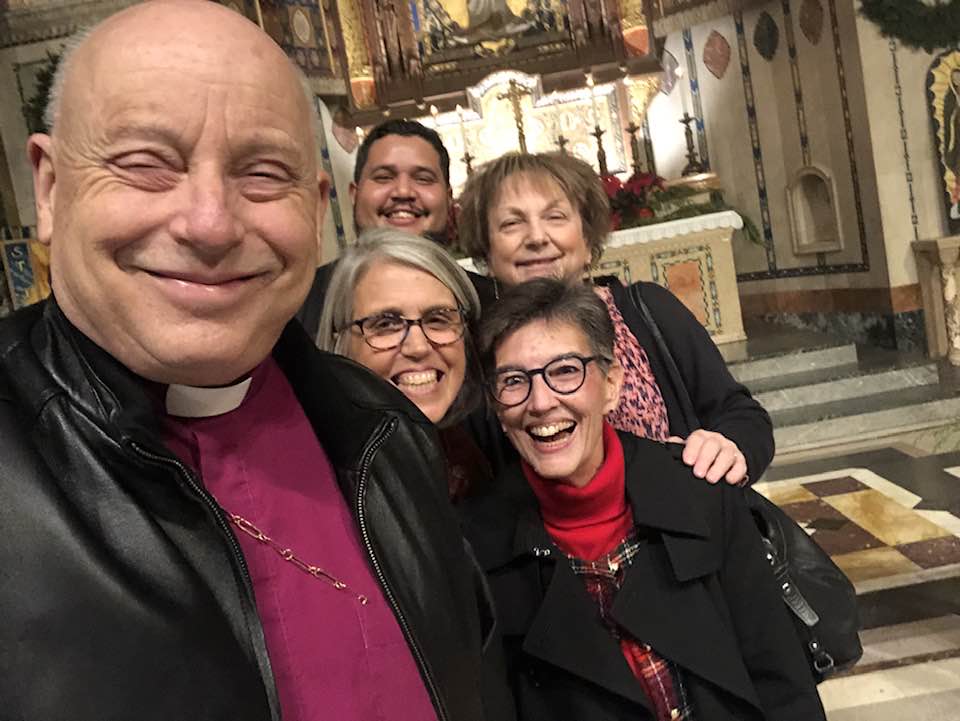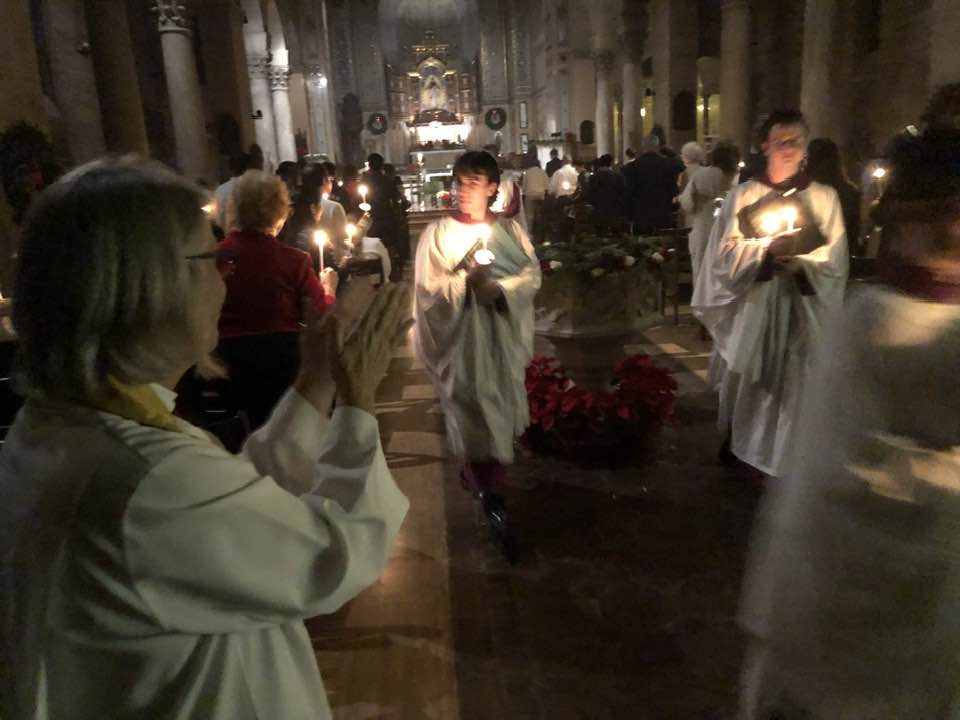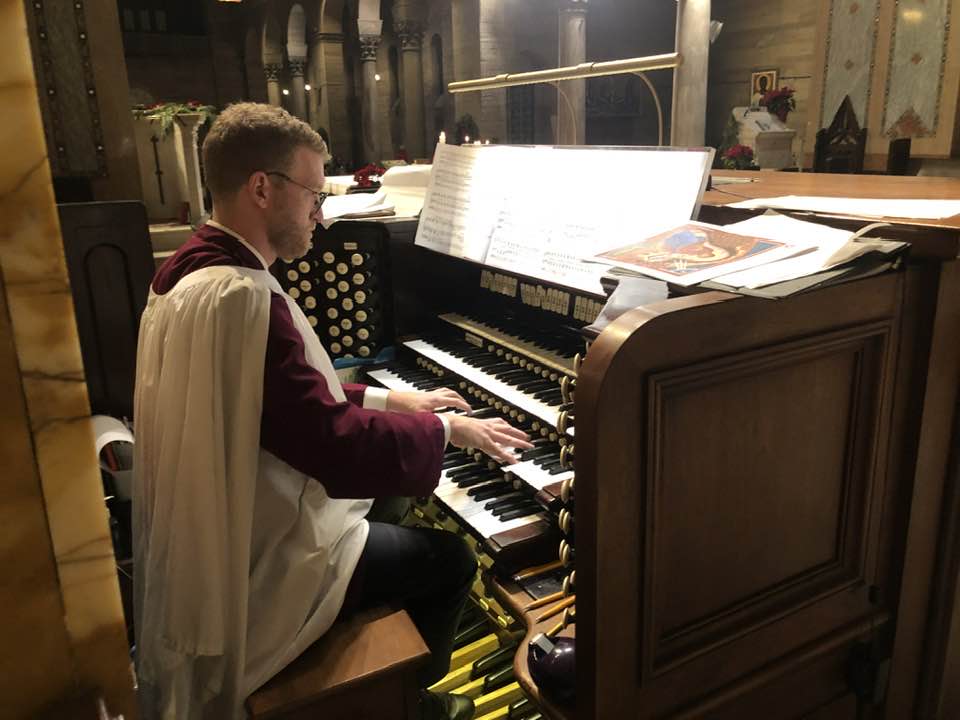
We return to Bethlehem at Christmastime to hear the story again and to let it boggle our minds.
The first miracle is how God uses hapless imperial factotums for God’s purposes. Some official sitting in Rome decided it was time to make all the men in captive Palestine return to their hometowns to be registered – and that meant Joseph, whose people were from Bethlehem. Mary was from Nazareth, in Galilee, but with kin living near Jerusalem who may have helped connect the young people. The Bible doesn’t tell us much about their courtship or betrothal, nor do we know why the couple was staying in Nazareth. But pregnant or no, they had to go to Bethlehem – it was like walking from Los Angeles to Palm Springs to file our taxes or register for the draft. Just another way for the empire to keep people down.
So this is the first miracle – the bureaucrats singing along with the prophets without even knowing it, delivering the holy family to Bethlehem, which was the very place the Hebrew Testament had foretold a Savior would be born. These officials thought they were doing the empire’s work – but they were doing God’s work, laying the cornerstone for a new empire of love that would tear down the mighty from their thrones and exalt the humble and meek.
Caesar was a mere agent of the God most high. Herod, too. Trump and Biden and each of us, for that matter. God is at work in us all. Because God’s purposes can’t be thwarted. The essence of our Christian formation is understanding that our vocation is by and large to get out of God’s way. Because whoever we are, whenever it is, God will find a way through us, around us, or over us — with us, or in spite of us.
Which brings us to the second mindboggling miracle — the one that brings us home every year. Every single Christmas, we pack our bags for the journey back to innocence, back to Bethlehem. We pack our bags and wrap our packages, reenacting the generosity of the wise visitors from the east. We don’t have to ride a donkey, but most of us, if we’re flying, have to fly coach – which might actually make us long for a nice quiet donkey ride through the desert on a clear winter day.
Each year, we hear the whisper on the wind – not Caesar decreeing but the Holy Spirit singing. Nor a dirge but a dance. And we come again to Bethlehem. We put a little fresh straw in the manger in our grandmother’s old creche. We get a new bulb for the star on top of the tree. The old Christmas records gave way to CDs. Now we stream our carols while we wrap gifts or use our phones to tell Amazon to wrap them for us.
Every year, Scrooge finally comes to terms with his family of origin issues and sees the light on Christmas morning. Every year Tiny Tim does not die. Since Christmas 1843, when Charles Dickens first set the story down – in 180 years, Tiny Tim has never died.
Every year, we imagine how it was when the baby was born, and we remember – we do have a tendency to forget – but tonight, at least, we remember that God is with us all the time. The incarnation is our permanent way of being, our way of love, the pilot light in our hearts that never goes out. The image of God we each bear is indelible. We can’t evade it. No unjust earthly authority can erase it. Every race and nation, every orientation and identification.
God came to inhabit the child and through him all people, that we might no longer be hostages to our sin or regrets nor to the sins of cultural, political, and economic oppression. That we might grow into the full stature of our glimmering God selves in order to better accomplish God’s almighty purposes of love, justice, and righteousness. The second miracle is that we come to Bethlehem every year to reclaim our power and authority in Christ — at home, at work, at school, at church, in our nation, in the world.
Now if we’ve been to seminary or taken EfM, or we’ve been to Bible study, we understand the modern scholar’s skepticism about the Nativity stories. Christmas is only in Luke and Matthew, and the stories don’t match up. Did the Holy Family flee to Egypt to get away from King Herod, as Matthew recounts, or did they take eight-day-old Jesus to the temple to be circumcised right under Herod’s nose, as Luke discloses? And think about all those gob smacked shepherds in the fields, amazed at the song of the angels. The shepherds told everyone what they’d heard, and they were all amazed, too. All that utter amazement, and yet 30 years later, according to gospels, Jesus’s messiahship was still a secret.
The Nativity stories are our collective leap to the innocence of Bethlehem faith. The anchor for my faith is verse 19 of our reading from Luke: “But Mary treasured all these words and pondered them in her heart.” I think Mary – much later, after the first Easter – told those she trusted the stories about Jesus’s birth. Her account may not have been journalistic, or maybe the gospel writers got some details wrong. Human memory is imperfect. The gospels don’t even agree on how many loaves and fishes our Lord divided by the Sea of Galilee. In his story “A Child’s Christmas In Wales,” Dylan Thomas writes, “I can never remember whether it snowed for six days and six nights when I was twelve or whether it snowed for twelve days and twelve nights when I was six.” About my own life, I sometimes get the details wrong. I sometimes smush two stories together. You get a better story that way.
But Mary remembered the visit from the angel back in Nazareth. She remembered singing her song with her cousin Elizabeth when they were both pregnant: “My soul proclaims the greatness of the Lord.” And she remembered everything about the birth of her precious child, as every parent does. Notwithstanding the song “Mary Did You Know,” if it weren’t for Mary, we wouldn’t know a thing about the night God came down to reveal the fire in us that will never die. Without Mary’s song, we wouldn’t have anything to sing about Christmas at all.
Beholding the empty streets of Bethlehem tonight as the cruel war rages in Israel and Gaza, let us give thanks for the faithful Christians in the Holy Land who keep their lamps lit against the worse darkness of their lives. Our Christmas prayers also fly to God for the people of Ukraine, Russia, Somalia, and Sudan — all stalked by war, starvation, or both. This afternoon I checked in with a retired priest colleague, close to 100, to wish her a Merry Christmas; I briefly reflected on the darkness shadowing the world. She wisely replied, “It’s biblical.” Which is to say that nothing we are experienced is new. The Incarnation first caught fire in a world darkened by ignorance, injustice, and cruelty – as ours is tonight.
Nothing is new, and nothing lies beyond the power of our God in Christ to make everything new. According to the teaching in Titus, our Savior came not because of anything good that humanity had done, but strictly because of God’s mercy – because we needed our Savior so desperately.
And behold God’s power once unfurled. At the first Christmas, the mighty Roman emperor – the most powerful person on earth – was a mere narrative tool, a bit player in the story of God’s eternal incarnate love. So it will be for every tyrant of our time. In our world, in our country, things may get worse before they get better. But it is for exactly such times that our God came down at Christmas. My Christmas leap of faith is that the darkness will never overcome the light. That no cruelty or sorrow lies outside the reach of our repentance and God’s redemption and reconciliation. That all roads lead home, to the empowering, incarnating innocence of Bethlehem.
— My sermon and scrapbook from midnight mass on Christmas Eve at St. John’s Cathedral in Los Angeles as a guest of the Very Rev. Anne Sawyer, interim priest in charge and dean. The Revs. Margaret Hudley McCauley and Mel Soriano assisted. Dr. Charlotte Borst was lector. Under the direction of Christopher Gravis, with Zach Neufeld at the mighty St. John’s organ, the choir was glorious.
